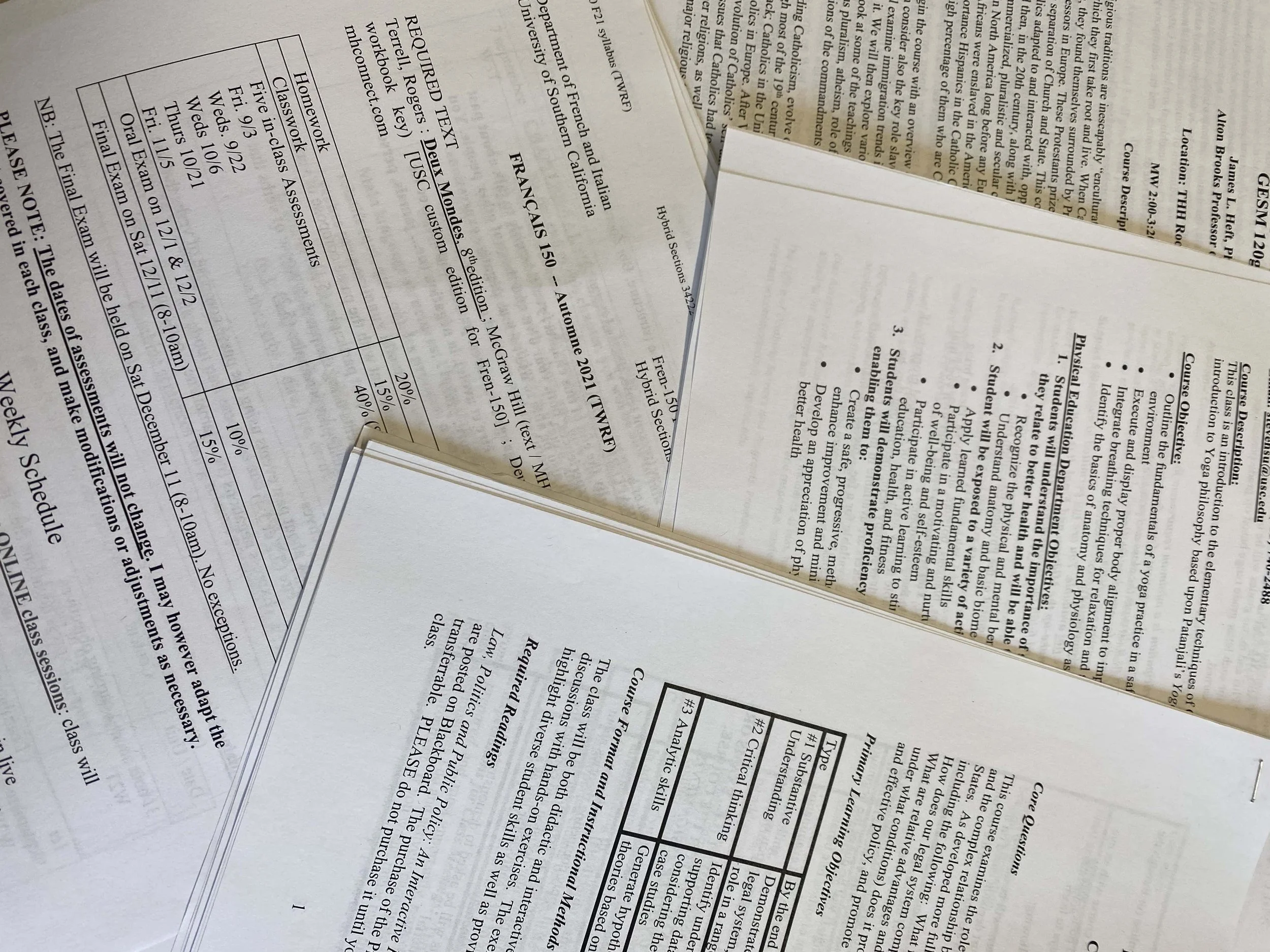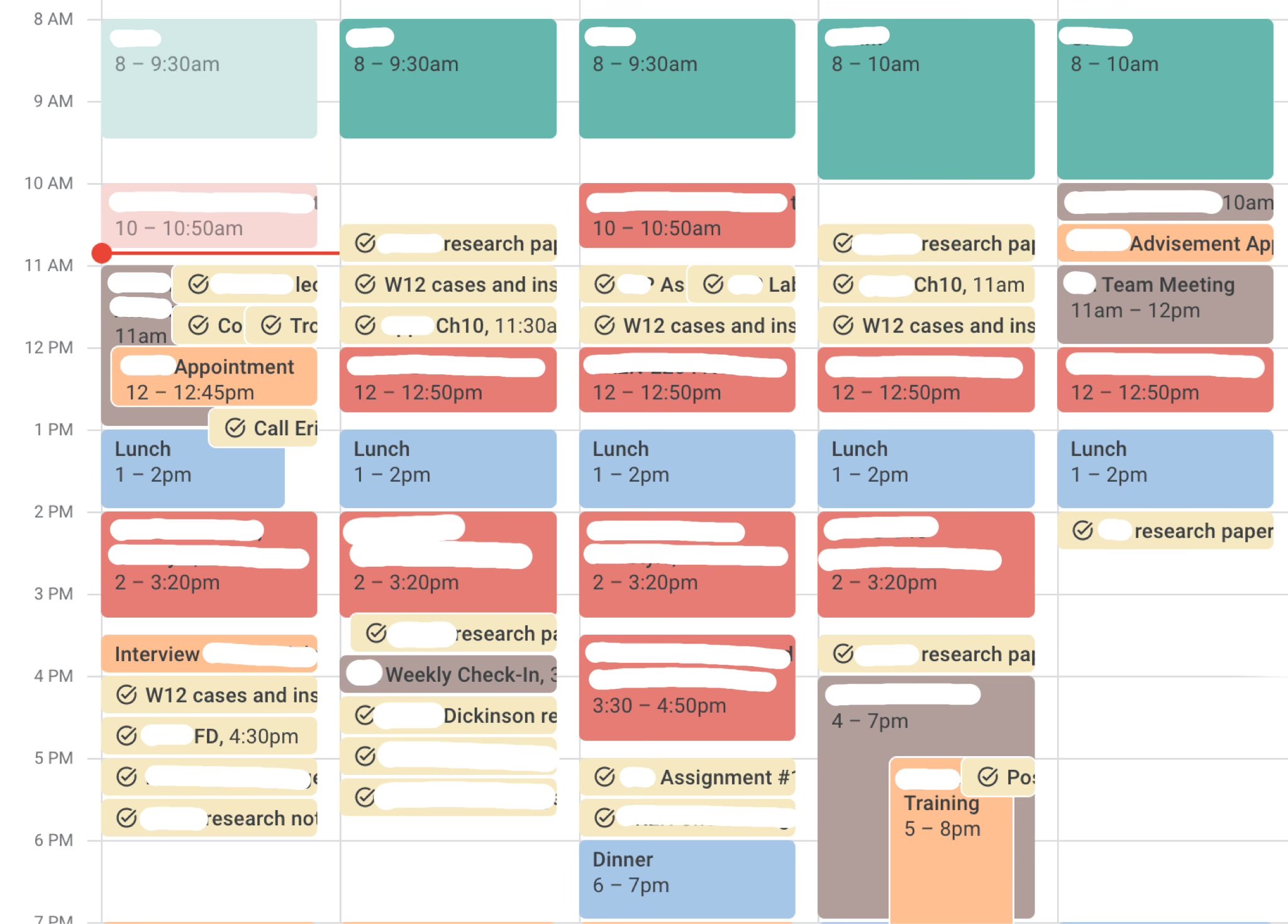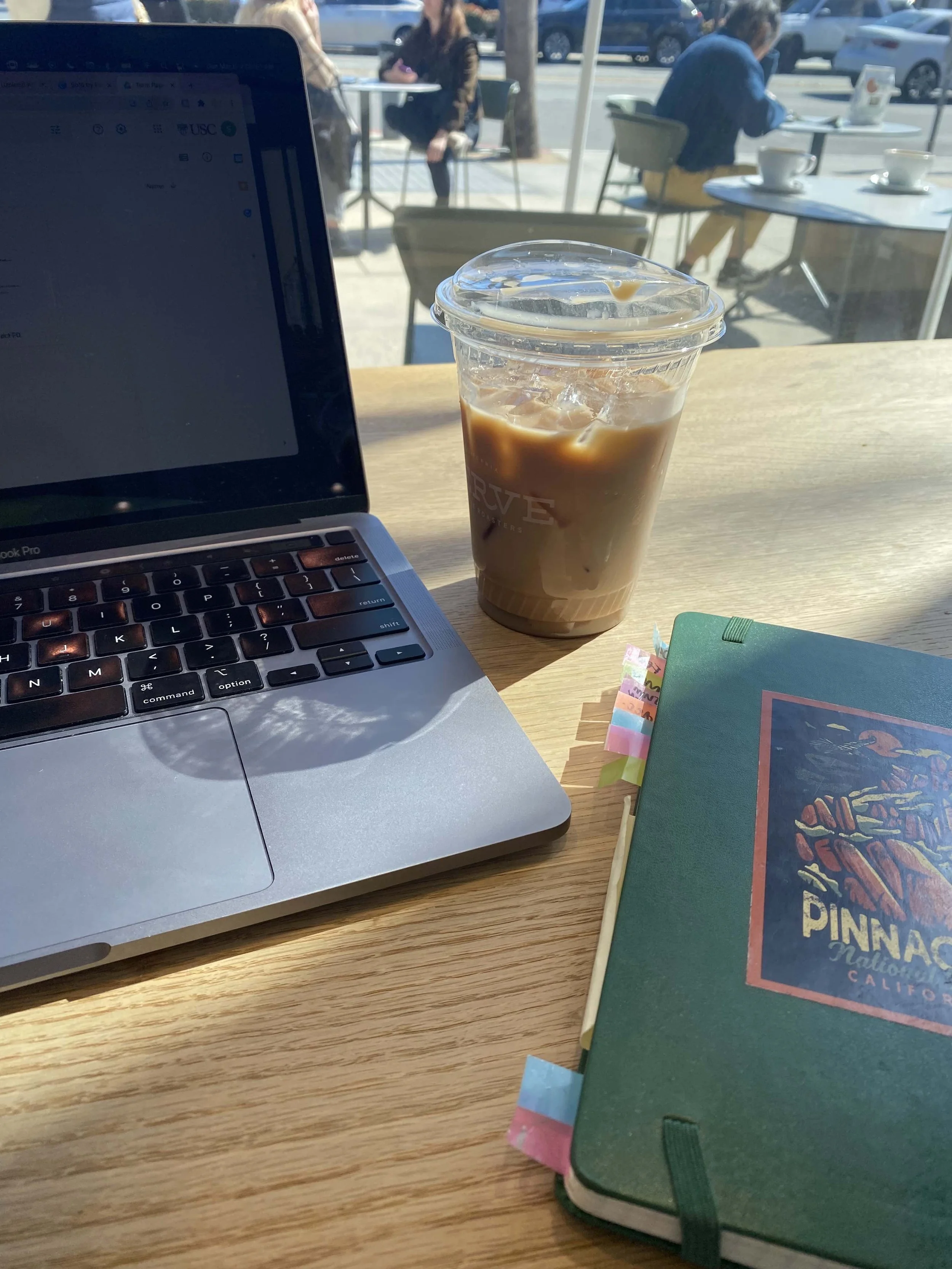Getting Ahead of the Game: Study Tips To Make Sure You’re Prepared For Finals
By: Sian Salazar ‘25 (Guest Blogger)
If you’re like me, chances are you’re already thinking about this upcoming finals season. I mean, we only have a month left! I might as well spend that month trying to make finals week as painless as humanly possible. Here’s how I plan on doing that, and how maybe you can too.
Before Finals (Prep):
Take advantage of your syllabus.
Yes, I know, you’ve probably heard this a million times. But I swear, it’s really important. Your syllabus provides you with everything you’ll be learning in the course. It’s an insanely valuable tool that most people don’t take advantage of.
If you’re really hardcore like me, you’ll be able to plan ahead for the entire semester with the syllabus. You can set deadlines for important projects far in advance and start breaking them down into more manageable chunks early in the game. If you know you have a major research paper due 3/4 way through the semester, you can start doing small tasks for it about a month ahead of time so the entire process as a whole feels less overwhelming.
For example, you can break down writing a large paper into brainstorming ideas, forming your thesis, researching key points, creating an outline, and turning that outline into a rough draft. You’ll feel a lot more productive when you’re able to check of “write thesis” from your to-do list and you’ll be able to avoid feeling like you’ve only written your thesis.
Starting early and planning ahead is truly a game changer, and the key to being able to do this is by paying attention to the syllabus—you’d be surprised how often a professor will casually mention a major project due in a week that you’re supposed to have been working on for a month.
Additionally, the point of all the classes we’re taking isn’t just to memorize facts and figures to pass the exam—although it may feel like that at times. The point, ultimately, is long-term retention and thorough understanding of the content. You can use your syllabus to keep track of certain topics you’ve covered in class and when you covered them, and from there you can use the dates to help you review over the course of the semester. Generally, it’s a good rule of thumb to check in on new content two weeks after you’ve learned it (by reviewing notes), and then to see if you can still apply what you’ve learned a month or six weeks after initially learning it. This method of revision is much more consistent than cramming the night before a test and really cements what you’re learning by giving it a solid foundation.
Start time-blocking your study sessions.
I am a firm believer in the power of time-blocking. Every week on Friday, I sit down and go through my syllabus to see what’s due in the next week. I’ll then take the time to figure out how to break down all of my assignments into more manageable tasks, and from there I’ll estimate how long I think each task will take me to complete.
I’ll then schedule in each task around my typical weekly schedule. I already have an established routine—I know when I typically meet my friends for meals, I know when my classes are, and I know when I go to the gym—so I’ll fill in the empty areas around these times with tasks I need to complete. Sometimes if it’s a quick task I know I can bang out in 15 minutes, I’ll schedule it in right before a meeting because I know I can get it done. If it’s something I’ll know will take much longer, like a coding assignment or starting to research a paper, I’ll schedule it in times that I know I’ll have free to go to the library.
When you have a predetermined amount of time to get a very specific task done, you’d be surprised at just how efficient you are. This system works really well for me because I’m an incredibly goal-oriented person—getting through a 3-hour session I’ve set aside to complete a select few assignments is a lot easier when I know I’ll be meeting my friends for dinner later.
The key to successfully using time-blocking is to be realistic in estimating what you can accomplish. Don’t expect to get a major assignment done in the span of just an hour. Even if you get half of it done and worked hard for that hour, you’ll only be disappointed with yourself because you didn’t meet the goal you set for yourself, even if it was an unrealistic one.
Overall, time-blocking is an incredibly powerful tool that you can use to increase your efficiency levels and start getting more work done in less time.
Be honest and hold yourself accountable.
Like I said, being realistic with yourself about what you think you can accomplish is essential to any study session. Be sure to set realistic goals and to schedule in only what you know you can get done. That being said, don’t underestimate yourself! Once I get into the work flow, I can normally move seamlessly from one task to the next without losing concentration. At the same time, don’t make the all-too-common mistake of telling yourself you’re going to study with friends and instead end up sitting there laughing with them for 3 hours when you should be working. There’s nothing wrong with studying with friends, of course—but if you desperately need to get something done, sometimes a solo study session is the way to go.
Friends can be a great way to hold yourself accountable. If you require external validation, like me and most of the people I know, find some study buddies to help you with that! My best friend and I go to separate schools hundreds of miles apart, but sometimes we’ll text each other to let each other know what we plan to get done that day. At the end of the day, we’ll check in with each other to see what we accomplished. It probably sounds a little bit strange, but the system works for us, and it’s good to let others know what you’re trying to get done so that you’re not the only person who can hold yourself accountable—because we all know that we’re never always 100% honest with ourselves.
During finals:
Okay, so you did it. You went through your entire syllabus, you have a perfect and realistic to-do list divided hour-by-hour into manageable chunks, and you found yourself a study buddy. Now comes the hardest part: Actually studying. What now?
The Pomodoro method.
The Pomodoro method is the best method I’ve found to prevent myself from getting burnt out. I’m sure we’ve all shut ourselves up in the library for 7 hours at a time at least once. If you managed to work the entire 7 hours straight through—first of all, good for you, and second of all, please go take a break. I guarantee you that if you plan on heading back to the library after a meal break, or if you plan on spending a second full day in the library, you’re not going to be nearly as productive as you were during those initial 7 hours.
Why? Because you’re burnt out. Because your brain needs a break.
The Pomodoro method can be used to solve this problem. It’s based on the idea that your brain needs breaks for continued productivity and maximum efficiency. You typically choose a period of time for which you want to work, and take 5-10 minutes of that time and set it aside for a break. This break can include using your phone if you want to, but it can also mean physically removing yourself from your place of study—going for a short walk and getting some fresh air, or just stretching to get your body moving and your blood flowing again. If I’m working on short 30-minute tasks, I’ll work for 25 minutes, take a 5 minute break, and move on again to the next task. If I’m doing something that requires my unbroken concentration for longer periods of time, I’ll work for longer, maybe an hour and 15 minutes, and take a longer break to compensate.
While it may seem counterintuitive to break up your study “flow,” I promise that allowing yourself to take a break prevents burnout and increases your productivity in the long run. You’ll be able to work harder for longer overall, and will minimize the amount of time you waste being distracted or procrastinating starting your next text.
Find a space that you enjoy.
If you’re going to be spending a long time working to get a major assignment done, it should be somewhere that you enjoy, or at least somewhere that is conducive to working. I personally work best when I’m free of all distractions, so I dislike studying in my room. I like to work in the little study cubicles in the libraries because I can control what’s in there. There’s no photos of my friends on the walls to distract me and my suitemates or roommate can’t pop in to distract me either.
Some of my friends, though, prefer being in an environment that they consider to be peaceful, so they deck out their rooms with diffusers and essential oils and decorate the walls with prints and photos they think are pretty. They like to study in areas that they enjoy because they feel like they can stay there for longer.
Basically, it’s completely up to personal preference. The only important thing is to make sure that it’s a place you enjoy and that it’s an environment that works with your style of studying. You should make sure your study space is distraction-free though. I use Forest, an app on my phone, to deter me from using it or checking it while I’m working and typically turn my phone on do not disturb mode so I won’t be bothered by any incoming notifications either. It’s also possible to block certain websites on your computer, which can be incredibly helpful if you know you’re at risk of going down a YouTube rabbit hole.
Finals season, and also just the academic year in general, can be really tough on people. It can often be difficult to find a balance between enjoying yourself and getting all your assignments in on time. The best way to combat burnout and to avoid last-minute crams during finals week is to start early and plan ahead, which I hope is what you’ve learned from this. No matter how you work best, though, I wish you the best of luck with your exams—and happy studying!
Want more from Trojans 360?
Visit Trojans 360 on Facebook & Twitter to stay up to date with more student content! You can also Ask A Trojan an anonymous question, and we’ll try to answer it in a future post. And don’t forget to follow us on Instagram!
Trojans 360 is USC’s official student-run blog. Content created by students, for students.




